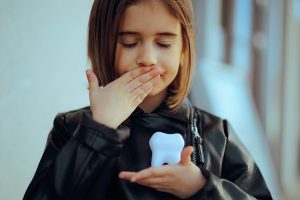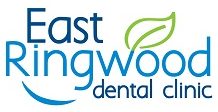Hospitals may not be the most obvious place for children to have dental treatment, but annually thousands of Australian families are having to do just that. The unfortunate part is most of these dental conditions could have been prevented.
Tooth decay remains one of the most common chronic childhood diseases in Australia, despite being largely preventable. 1 in 3 Australian children aged 5–6 experience tooth decay in their baby teeth, and 1 in 4 children aged 6–14 have tooth decay in their permanent teeth. Sadly, more than 1 in 4 children aged 5-10 have untreated tooth decay.
Poor oral health in early childhood can lead to pain, infections, difficulty eating, and even long-term dental issues. Dental issues left untreated can also lead to spread of disease in the body.
 Why Is Tooth Decay So Common in Australian Children?
Why Is Tooth Decay So Common in Australian Children?
A number of factors contribute to high rates of childhood tooth decay:
- High Sugar Consumption
The Consumer Survey by the Australian Dental Association showed that while most parents are aware that soft drinks, energy drinks and fruit juice lead to decay, nevertheless:
-
- 26% of children have fruit juice daily
- 37% have 2-5 fruit juices a week
- 37% have 2-5 soft drinks a week
As parent, we may think of being kind to our kids by giving them a sweet treat, but most sugary drinks have little to no nutritional value. Kids are better off having a piece of fresh fruit.
The World Health Organisation recommends our daily intakes of ‘free’ sugars should be limited to 5% of total calories; e.g. up to 5 teaspoons for 4-6 year-old, 6 teaspoons for 7-10 year-old and 7 teaspoons for 11+ year-old. Yet many kids exceed this, typically by more than double the amount!
Where is all the sugar coming from? ‘Free’ sugars are any sugars added to food or drinks, e.g. in savoury snacks, breakfast cereals, muesli bars, soft drinks, biscuits; or naturally occurring in fruit juices and purees, e.g. honey.
- Delayed First Dental Visit
The Australian Dental Association (ADA) recommends a child’s first dental visit by age 1 or when the first tooth appears. However, up to 75% of children have their first dental check-up in much later years, by which time decay may already be present. In Australia, one third of first dental visits for children result from dental pain or dental problem.
- Lack of Fluoride Exposure
While most Australian tap water is fluoridated, some regions lack optimal fluoride levels. Additionally, children who drink mostly bottled water are at higher risk of dental problems.
Preventative Measures to Protect Children’s Teeth
- Start Oral Care Early
-
- Before teeth erupt, clean gums with a soft cloth.
- Once teeth appear, use a small, soft toothbrush with fluoride toothpaste.
- Limit Sugary Drinks & Snacks
-
- Avoid sugary juices, cordials, and sticky snacks (e.g., lollies, dried fruit).
- Encourage water and milk instead.
- Dental Sealants for Extra Protection
-
- Fissure sealants can reduce decay risk by up to 80%. Please ask our friendly dentists for fissure sealant treatment.
Early Dental Visits, Good oral hygiene and Regular Dental Check-ups are Critical
 Most dental diseases are largely preventable. Early preventive strategies include:
Most dental diseases are largely preventable. Early preventive strategies include:
-
- Parental counselling about diet
- Establishing sound oral hygiene practice, including the appropriate use of fluorides
- Regular 6-monthly oral health check-ups with our dentists.
Dental problems like tooth decay, if picked up early, can be controlled fairly simply, before they become established and cause serious trouble. Leaving dental visits until the teeth hurt or break down means more complex treatment may be needed. Routine visits to our dentists help prevent painful and costly treatments in the long-run.
A Healthy Smile Starts Early
The great news is tooth decay in Australian children is a preventable.
-
- Start dental visits by age 1
- Have regular 6 monthly dental check-ups
- Reduce sugar intake
- Get fissure sealants as needed
- Use fluoride toothpaste
Book your child’s dental appointment today at East Ringwood Dental Clinic – Early dental intervention saves teeth!
Did you know? The Child Dental Benefits Schedule (CDBS) covers dental services for eligible children aged 2–17 receiving. Check your eligibility via Medicare/Centrelink.
